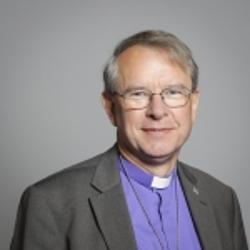Economic Situation: Biodiversity
(asked on 18th May 2021) - View SourceQuestion to the Department for Education:
To ask Her Majesty's Government, further to the report commissioned by the Treasury The Economics of Biodiversity: The Dasgupta Review, published on 2 February, what steps they are taking to ensure that all children understand how nature contributes to the UK economy.
The department is currently working with Her Majesty’s Treasury to contribute to a full response to the Dasgupta Review.
The National Curriculum is a framework which sets out the content that the department expects schools to cover in each subject, but teachers have the flexibility and freedom to determine how they deliver the content in the way that best meets the needs of their pupils. This includes choosing to cover particular topics in greater depth if they wish. Although academies and free schools are not required to teach the National Curriculum, they are expected to teach a curriculum that is similar in breadth and ambition, and this is reflected in the Ofsted school inspection handbook. This can be viewed at https://www.gov.uk/government/publications/school-inspection-handbook-eif.
Subject content related to the environment is included within the science and geography National Curriculum. At primary level (key stages 1 and 2), pupils are taught how environments can change, including positive and negative impacts of human action, weather, and climate zones. In secondary science (key stages 3 and 4), pupils are taught about the production of carbon dioxide by human activity and the effect that this has on the climate. At GCSE, pupils consider the evidence for anthropogenic causes of climate change. They also study the impact of increased levels of carbon dioxide and methane and how this can be mitigated.
Under the key stage 2 non-statutory guidance for citizenship, pupils are taught about the wider world and the interdependence of communities within it. Pupils are taught that resources can be allocated in different ways and that these economic choices affect individuals, communities and the sustainability of the environment.
In geography, at key stage 2 and 3 pupils should be taught human geography. In key stage 2, pupils are taught about types of settlement and land use, economic activity including trade links, and the distribution of natural resources including energy, food, minerals and water. In key stage 3 pupils are taught about population and urbanisation, international development, economic activity in the primary, secondary, tertiary and quaternary sectors, and the use of natural resources. These topics can be built upon in more depth at GCSE.
In 2017, the department introduced a new environmental science A level. This enables pupils to study topics that will support their understanding of climate change and how it can be tackled.

